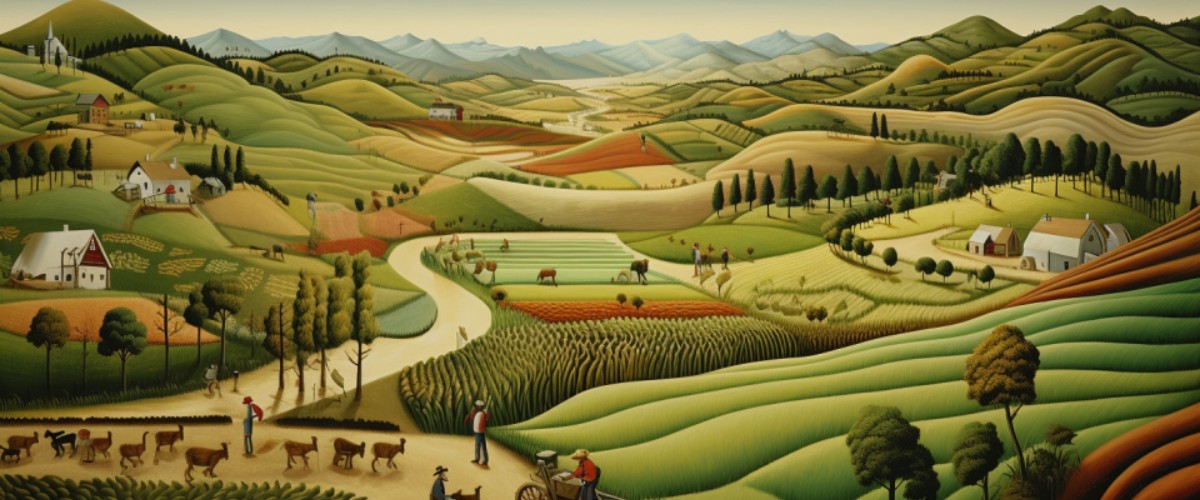A monumental shift from nomadic hunting and gathering to settled farming, the Agricultural Revolution transformed human societies, laying down the foundations for civilisation as we know it.
Significance
- Catalysed the development of settled societies
- Paved the way for technological advancements
- Enabled population growth and social stratification
- Stimulated trade and economy on an unprecedented scale
Background
Climatic and Environmental Factors
- End of Pleistocene Epoch: Melting ice sheets led to more amenable farming conditions.
- Bountiful Landscapes: Rich, fertile lands encouraged the cultivation of crops.
Societal Needs
- Growing Populations: Rising numbers required stable and ample food sources.
- Resource Scarcity: Overhunting led to a need for reliable food production.
Major Happenings
- Cultivation of Crops:
- Development of farming tools
- Cultivation of wheats and barleys in the Fertile Crescent
- Rice in Asia and maize in the Americas
- Domestication of Animals:
- Goats, sheep, and cattle in the Fertile Crescent
- Llamas in South America
- Chickens in Asia
- Settlements Formed:
- Permanent homes built close to crop fields
- Development of villages and eventually, cities
Immediate Outcomes
- Social and Economic Changes:
- Development of classes and social hierarchy
- Trade between different communities and regions
- Accumulation and inheritance of wealth
- Technological Innovations:
- Advances in tool creation and use
- Development of new farming techniques
- Conflict Over Resources:
- Emergence of disputes over land and resources
- The formation of organized armed forces
Long-term Impact
On Human Societies
- Urbanisation: Growth and development of cities and civilisations.
- Technology: Advancements in tools, machinery, and agricultural practices.
- Government: Establishment of leadership, laws, and governance structures.
On Earth’s Trajectory
- Deforestation: Clearing of forests to create farmland altered landscapes.
- Biodiversity: Selective breeding and farming changed natural ecosystems.
Conclusion
In its essence, the Agricultural Revolution (around 10,000 BCE) is not merely a historical episode but a foundation upon which our societies intricately developed. It not only altered our way of living but also instigated a domino effect that shaped social structures, economies, and the environment. From the initial cultivation of crops to the bustling urban centres we observe today, its ripples can be witnessed in every grain that forms our daily sustenance and every city that stretches across our horizons. The Agricultural Revolution resonates still, as contemporary society grapples with the consequences and benefits of intensive agriculture, evidencing that its significance is far from being entirely harvested in the annals of history.








